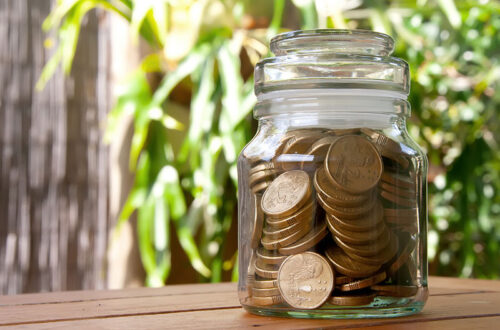With rising tariffs, global tensions, and talk of a potential economic slowdown, many people are wondering what they can do to protect their wallets. Whether you’re feeling the pinch at the grocery store or seeing headlines about increased car prices, it’s smart to start thinking about how to shield your personal finances.
Here are some practical steps you can take now to protect yourself from the effects of tariffs and prepare for a possible economic downturn:
1. Reevaluate Your Spending Habits
Start by reviewing your monthly budget. Rising prices from tariffs—especially on imported goods like electronics, clothing, and cars—can creep into your daily expenses. Now’s a good time to:
- Cut back on non-essential spending
- Buy local or American-made alternatives
- Postpone large purchases, especially on big-ticket imported items that may soon cost more
Small adjustments now can build financial resilience over time.
2. Build (or Boost) Your Emergency Fund
If you don’t already have one, create an emergency fund with enough to cover 3 to 6 months of expenses. If you have one, consider topping it up. A solid savings buffer can help you weather job instability, unexpected bills, or sharp increases in everyday costs.
3. Lock In Fixed Rates Where You Can
If you have loans or credit card balances with variable interest rates, consider refinancing or consolidating into a fixed-rate option. Rising interest rates often follow economic uncertainty, and locking in a fixed rate now can protect you from future hikes.
4. Diversify Your Income
A side hustle, freelance work, or passive income stream can make a big difference if the economy takes a hit. Even a few extra hours per week can boost your savings or pay off debt faster.
5. Be Strategic With Investments
Don’t panic-sell if the market dips—but do reassess your portfolio. If you’re close to retirement or need access to cash soon, shift toward more conservative investments. Long-term investors can often ride out volatility, but staying diversified is key. If you’re unsure, talk to a financial advisor for guidance tailored to your situation.
6. Delay Major Purchases If Possible
Prices on imported goods—from appliances to vehicles—are likely to rise due to tariffs. If a purchase isn’t urgent, it may be smart to wait until prices stabilize or consider domestic alternatives that aren’t subject to additional taxes.
7. Focus on Skill-Building
Recession-proof your career by sharpening your skills. Look into certifications, training, or even short courses that increase your value on the job market. Workers with adaptable skillsets are often more resilient during downturns.
8. Stay Informed, Not Alarmed
Keep up with economic news, but don’t let it lead to rash decisions. A calm, informed approach is always better than reactive moves. Know what’s happening, assess how it affects your personal situation, and adjust accordingly.
Final Thoughts
Tariffs and economic shifts are mostly out of your control—but your response isn’t. By budgeting smarter, saving more, and staying flexible, you’ll be in a much better position to navigate whatever comes next. Preparedness isn’t about panic—it’s about staying ready and resilient


